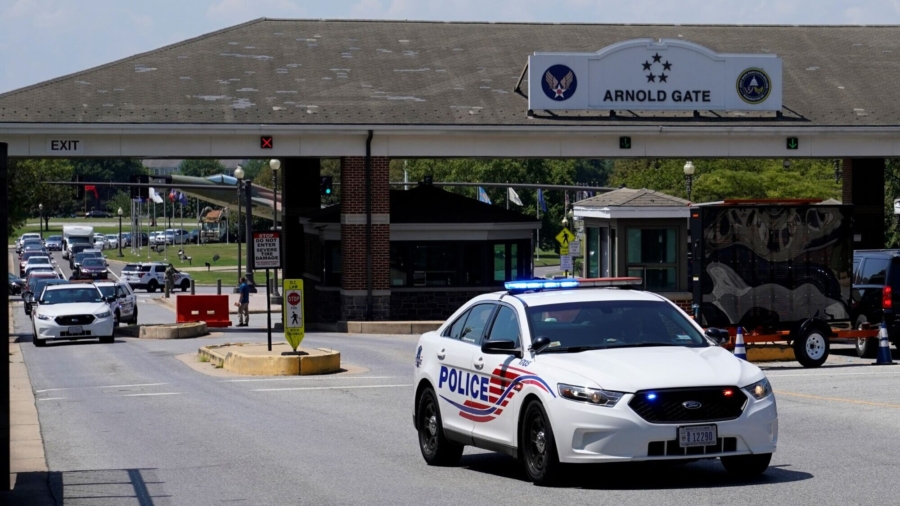Police in Washington, D.C., are handing out auto-tracking devices in an effort to curb a sharp increase in carjackings, auto thefts and other crimes in the nation’s capital.
For Jeff Pena, whose father Raul drives for the rideshare app Lyft, this was good enough reason to inform his dad right away upon hearing the news.
“It’s just getting crazy out there, especially now because Christmas is coming and nobody has any money,” he said.
The father and son recently waited in line in their car near the city’s pro-baseball stadium for a police officer to install the device, essentially an Apple AirTag, and give them instructions on operating the tracker.
The auto-tracking device handout is part of a new initiative by the Metropolitan Police Department and Mayor Muriel Bowser’s government to combat auto crime.
A sharp rise in violent crimes, particularly homicide and car theft, has been a wake-up call for the city’s officials. It was enough for deputy mayor for public safety, Lyndsey Appiah, to admit before the House Judiciary Committee last month that the city faces a crime crisis.
‘I Feel Very Unsafe’
Raul Pena said he recently started becoming more cautious on his journeys and stopped driving at night despite enjoying driving and the social aspects of his work.
“I do get nervous sometimes. It’s worse now because it gets dark so early in the winter. Right now, I feel very unsafe,” he said.
Not long after he had his tracker installed, a similar story unfolded for mother of three and grandmother of two, Faenita Dilworth, who waited in line in the parking lot of the old RFK Stadium for a city-sponsored handout of dashboard cameras.
“They told me to get a camera and make sure somebody installs it for me. If a person knows they’re being recorded, they’re less likely to do anything silly,” she said.
Auto Theft Hot Zones
Any District of Columbia resident who drives for a rideshare company like Uber, Lyft, Alto, or a food delivery service like DoorDash could receive the service free of charge. The AirTag trackers were available to any resident who lives in one of several designated auto theft hot zones.
Figures showing the rise in crime are certainly a concern with homicides up by nearly 35 percent as of November, alongside car theft and carjackings, which are by nearly 100 percent and close to 105 percent, respectively. Recent examples of this include a Texas congressman and a diplomat from the United Arab Emirates, who were both victims of carjacking.
“It is not lost on us that we need to do more to increase public safety,” said Salah Czapary, head of the city’s Department of Nightlife and Culture, which covers issues relating to restaurants and food delivery.
The department joined forces with the Department of For-Hire Vehicles on the issue of the dashboard camera distributions. DoorDash funded the initiative with a $500,000 donation, which facilitated the purchase of around 2,500 camera kits.
“We do feel it will help deter crime. That camera footage can help police to close a case and help prosecutors to successfully prosecute that case,” according to Mr. Czapary.
Some, however, questioned the feasibility of such equipment being installed. Jessica Gray, a high school administrator who was also waiting in line for the installation, said that despite being happy about the initiative, she was puzzled as to how it would work in practice.
“When you think about the response time, by the time the police respond and start tracking down the car, will there be anything left of it by the time they find it?” she said.
According to police Sgt. Anthony Walsh, the idea is all about helping investigators build a case that holds up in court and hopefully taking car thieves off the streets, despite not always being able to recover a stolen car immediately and intact.
He added that the tracker information would help police trace the route of the car thieves and possibly pull security camera footage from along that route, which would help police in an eventual arrest and court case.
When asked if the AirTag would allow the government to track drivers’ movements or give away their location, Walsh pointed out that the residents would be tracking on their phones. Any information can then be voluntarily passed to the police for further investigation.
The Associated Press contributed to this report.

